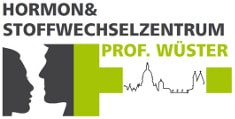Endocrinology news from Mainz: TPO antibodies and miscarriage
Endocrinology specialist informs: Levothyroxine does not reduce the risk of miscarriage
MAINZ. endocrinology specialist Prof Dr med Dr h. c. Christian Wüster refers to a recent study in connection with the use of levothyroxine in the case of detected thyroperoxidase (TPO) antibodies during pregnancy. It was published in the New England Journal of Medicine [1] and was able to prove that hormone treatment with levothyroxine does not reduce the risk of miscarriage or premature birth in patients with TPO antibodies and otherwise normal thyroid function. According to the authors of the study, treatment with levothyroxine during pregnancy is not evidence-based with regard to a healthy pregnancy. At the same time, the endocrinology specialist emphasises that adequate thyroid function and a supply of iodine are fundamentally very important for pregnant women.
Do not prescribe levothyroxine lightly, recommends endocrinology specialist from Mainz
Normal thyroid function of the mother during pregnancy is important for the development of the child, emphasises Prof. Dr. med. Dr. h. c. Christian Wüster. This is because the need for thyroid hormones increases by around 50 per cent during pregnancy. Against this background, the administration of iodine and levothyroxine may be indicated in the case of TPO antibodies.
TPO antibodies have been shown to increase the risk of miscarriage or premature birth. Levothyroxine corresponds to the body’s own thyroid hormone T4. However, the endocrinology specialist from Mainz warns against prescribing the active ingredient lightly. Instead, it should be carefully checked whether treatment with the thyroid hormone is indicated. This is because it is now recognised that treatment with levothyroxine is not relevant to the success of the pregnancy.
Prof Wüster from Mainz supports the demands of the German Society of Endocrinology
The specialist in endocrinology from Mainz does not consider it impossible that the prescription of thyroid hormones, which is not medically necessary, causes pronounced anxiety in pregnant patients. In addition, he believes that the unnecessary and unpromising administration of levothyroxine is at the expense of the healthcare system, which is financed on a solidarity basis. Prof Dr med Dr h.c. Wüster welcomes the efforts of the German Society of Endocrinology to adapt the national and international guidelines accordingly.
[1] N Engl J Med 2019; 380:1316-1325

